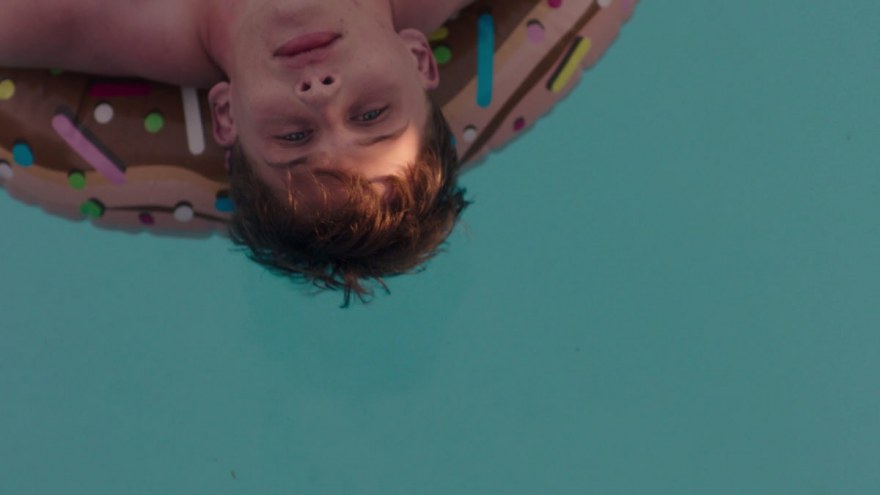Lunch with Unnatural
An interview with Amy Wang, director of Unnatural
What made you want to explore James’ “demons” via his burgeoning relationship with Izzy?
I first came across an article over 4 years ago about a 19-year-old teenager suffering from pedophilia. Despite never having touched a child and having no intentions of ever touching a child, he still saw himself to be a monster. The word “pedophile” is one of the most vile and taboo words in modern society. It is commonly associated with the image of a middle-aged man who has sexually abused a child. What people do not realize is that there is an entire community forced underground who are suffering from pedophilia who have never hurt a child. They have lived their entire lives harboring a secret so dangerous, that if exposed could threaten their lives. It is believed that only 2-3% of people who suffer from pedophilia will ever actually offend. Most go their whole lives keeping it a secret and never hurt a child. If we want to put an end to child abuse once and for all, we need to get to the root of the problem. This is only possible if those who suffer from this disorder feel safe to seek the help of doctors and psychologists. Because without help and support, these individuals can become isolated and could possibly join the ranks of those who prey on the most vulnerable members of our society.
Your portrayal of him is very nuanced and subtle. What did you hope to convey to the audience?
In this film, I want to explore what it’s like for a teenager to live with thoughts of pedophilia. To never have acted on it and yet be reduced to the same level as someone who has committed a crime. I question what it’s like hating who you are and what your sexuality represents. Being a Chinese-Australian filmmaker has been difficult for me. Growing up in a culture that was so inherently different from my ethnicity made me hate who I was. I saw people from Caucasian backgrounds and envied how easy life was for them. I yearned to be “normal” and to be accepted by my peers. I am making this film because I want people to see others as human; not a caricature or negative stereotype of their sexuality or their ethnicity. Through understanding and compassion do we grow as a culture and become better people.
Is there a reason you chose to direct this specific film for your thesis? Can you tell us more about the context in which it was filmed?
I wanted a film that would represent my voice and my outlook on society and culture. I’ve always been drawn towards pushing the boundaries and depicting stories about misfits and social outcasts. This was no exception. What’s interesting was the script was initially “red-lit” at AFI. But I knew I wanted to make the film and pushed for it to be made. I was lucky enough to have a dedicated and supportive team and they were the ones who stuck by me and believed in the project as much as I did.
How did you get your crew and cast together?
At AFI, you are asked to form your own team using one person from each discipline. All of my main crew were from AFI. I was also lucky enough to have friends at AFI who cared about me and the project who crewed on the film for free as my 1st and 2nd AD. I would not have done anything without them and my gratitude goes out them. Finding “James” is an interesting story. I had originally offered the role to another actor who had been in a couple of bigger movies with big stars. I did two rehearsals with them before realizing he was not the right fit. What made it worse was that I had auditioned someone earlier who I knew was perfect for the role. I then had the difficult task of calling his father and telling him my reservations. It was probably one of the most difficult and nerve-racking phone calls I’ve ever had to make. It was however an amazing feeling to call the actor I auditioned earlier to offer him the role. I am so thankful I did that because I believe he was made for the character and his performance in the film is exquisite.
What sort of freedom would you say the short format allows?
A short film allows you to express a concept as simply as possible. You do not have to worry about B storylines and expanding concepts into multiple themes and ideas. Another benefit is the funding and casting process. A short film is relatively easy to fund and it often features unknown actors. A short film can also act as a proof of concept for a feature.
If you’ve already been to Clermont-Ferrand, could you share with us an anecdote or story from the festival? If not, what are your expectations for this year?
I have never been to Clermont-Ferrand and I am so excited for it. I have heard it is a whirlwind of excitement and opportunities for the filmmakers. I look forward to the screenings, the audience reactions and the relationships I will build with other filmmakers around the world.
Unnatural is being shown in International Competition I11.









